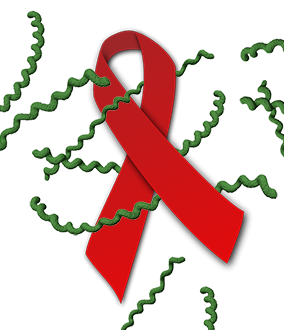
In 2005 the WHO estimated that in Africa there were 14 million people infected with syphilis (prevalence 3.5% for women and 4.5% for men), and by extrapolation a further 3.4 million new infections would have occurred in that year.
In the context of a major HIV epidemic, syphilis remains a public health concern. Primary syphilis significantly increases the risk of transmitting and contracting HIV infection. HIV may advance the natural course of syphilis, in particular neurosyphilis.
The 2011 South African National Antenatal Sentinel HIV & Syphilis Prevalence Survey showed an overall syphilis prevalence of 1.6% in pregnant women, down from 11.2 % when the survey started in 1997. The decline in syphilis can largely be attributed to the implementation of syndromic management of STIs from 1994 onwards. But syphilis remains an avoidable cause of perinatal and infant deaths in South Africa.
The prevalence of syphilis is likely to be much higher in at-risk groups; a 1998 study found a seroprevalence of 42% in female sex-workers in KwaZulu-Natal.
(Ramjee G, Karim S, Sturm A. Sexually transmitted infections among sex workers in KwaZulu-Natal, South Africa. Sex Transm Dis 1998;25(7):346-349.)
